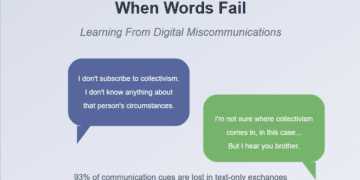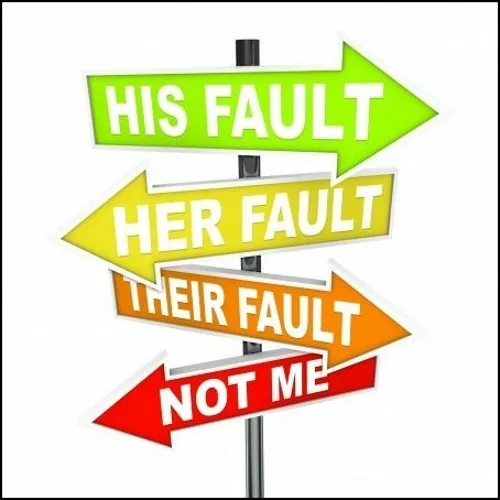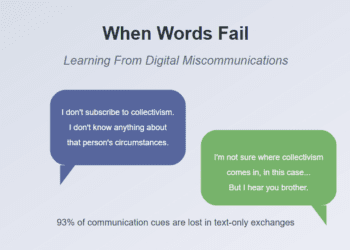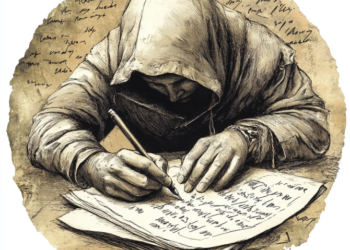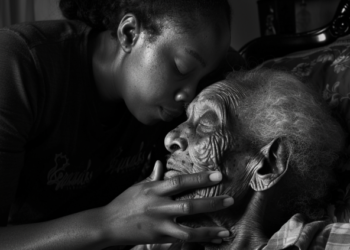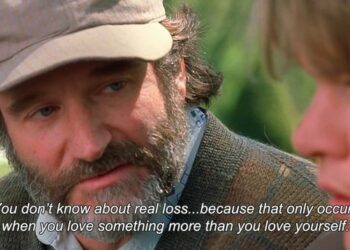In the intricate tapestry of the human mind, the concept of a “victim” can be both a powerful motivator and a paralyzing force. In this comprehensive exploration, we delve deep into the abyss of victim mentality, dissecting its roots, understanding its nuanced manifestations, and ultimately discovering the keys to profound and lasting liberation. The journey from victimhood to empowerment is not just a psychological transition but a profound shift in one’s approach to life.
Understanding Victim Mentality
Defining the Victim Mentality
At its core, victim mentality is a cognitive state where individuals perceive themselves as perpetual victims of circumstances, external forces, or the actions of others. This mindset fosters a belief that they have little control over their lives and that negative events are consistently out of their hands. Understanding this concept is crucial for those seeking to break free from its suffocating grip.
This victim mindset often manifests in distorted thought patterns, leading to a skewed perception of reality. Individuals may find themselves stuck in a loop of self-pity, blame, and a sense of powerlessness.
The Cycle of Victimhood
Victim mentality often stems from a combination of past experiences, upbringing, and environmental factors. A person trapped in this cycle may develop a distorted perception of reality, where challenges are seen as insurmountable obstacles, and personal agency is severely diminished. Breaking this cycle requires a deep self-awareness and a commitment to change.
Causes of Victim Mentality
Childhood Influences
Family dynamics play a pivotal role in shaping an individual’s worldview. Children raised in environments where blame-shifting is prevalent or where they are shielded from the consequences of their actions may be more susceptible to adopting a victim mentality later in life.
Understanding the impact of early experiences is crucial for breaking free from the chains of victimhood. The scars of childhood can run deep, and recognizing and addressing these influences is the first step towards liberation.
“The roots of victimhood often burrow deep into the soil of childhood experiences. Recognizing and addressing these influences is the first step towards liberation.”
Learned Helplessness
Psychologist Martin Seligman introduced the concept of learned helplessness, suggesting that repeated exposure to uncontrollable and negative events can lead individuals to believe they have no control over their circumstances. This learned helplessness becomes a breeding ground for victimhood.
It’s essential to recognize the signs of learned helplessness, as breaking free from this mindset requires a conscious effort to reclaim agency and control over one’s life.
Signs of Victim Mentality
Recognizing the signs of victim mentality is crucial for intervention and personal growth. Here are some common indicators:
- Externalizing Blame: Individuals with a victim mentality tend to externalize blame, attributing their challenges to external factors rather than taking responsibility for their actions.
- Helplessness and Powerlessness: A pervasive sense of helplessness and powerlessness is a hallmark of victimhood. This may manifest as a belief that one’s actions have no impact on the outcome of a situation.
- Constant Negativity: Chronic negativity is a clear sign of victim mentality. This negativity may be directed towards oneself, others, or the world in general.
- Resistance to Change: Victims often resist change, even when it may lead to positive outcomes. The fear of the unknown and a lack of confidence in one’s ability to adapt contribute to this resistance.
The Detrimental Impact of Victim Mentality
Mental Health Consequences
Embracing a victim mentality can take a severe toll on mental health. Chronic stress, anxiety, and even depression may become constant companions for those mired in this mindset. The negative thought patterns associated with victimhood can create a self-perpetuating cycle of despair.
“The victim mentality is like a heavy anchor dragging the ship of mental well-being into the turbulent waters of despair.”
It’s crucial to highlight the importance of seeking professional help for mental health issues. Therapeutic interventions, such as counseling and psychotherapy, can provide individuals with the tools they need to navigate the challenges of breaking free from victimhood.
Stunted Personal Growth
The belief that external factors control one’s destiny stifles personal growth. Opportunities for learning and self-improvement are often overlooked or dismissed, perpetuating a cycle of stagnation.
Moreover, the fear of failure and the reluctance to step out of one’s comfort zone can hinder personal development. Embracing a growth mindset, where challenges are viewed as opportunities for learning and improvement, is essential for breaking free from the shackles of victimhood.
Strained Relationships
Victim mentality can strain relationships, as constant blame-shifting and a lack of accountability erode trust and create an unhealthy dynamic. It becomes challenging for others to offer support when faced with a perceived inability to change.
Communication is key in navigating the complexities of relationships affected by victim mentality. Open and honest dialogue, coupled with a commitment to personal growth, can contribute to rebuilding trust and fostering healthier connections.
Breaking Free: A Path to Empowerment
Cultivating Self-Awareness
The journey to empowerment begins with self-awareness. Acknowledging the patterns of victimhood in one’s thinking and behavior is the first step towards breaking free from its grasp.
Self-reflection is a powerful tool for cultivating self-awareness. Taking the time to explore one’s thoughts, emotions, and reactions can unveil the deep-seated beliefs that contribute to a victim mindset. Journaling, meditation, and mindfulness practices can be valuable aids in this introspective journey.
“In the mirror of self-awareness, we can see the chains that bind us. Only then can we begin the process of breaking free.”
Harnessing the Power of Survival Instincts
Internalizing the lessons from past experiences and embracing the survival instincts within us is a powerful catalyst for change. To delve deeper into this transformative process, read my blog post on Harnessing the Power of Survival Instincts: Awakening the Sleeping Giants Within Us.
Survival instincts are ingrained within the human psyche, honed over millennia of evolution. These instincts drive us to adapt, overcome challenges, and thrive in the face of adversity. By reconnecting with these primal forces, individuals can tap into a wellspring of resilience and determination.
Building Resilience
Developing resilience is a crucial aspect of overcoming victim mentality. Resilient individuals view challenges as opportunities for growth rather than insurmountable obstacles. This shift in perspective is a key factor in breaking the victimhood cycle.
Resilience is not a fixed trait but a skill that can be cultivated. Strategies such as setting realistic goals, developing problem-solving skills, and fostering a positive mindset contribute to building resilience. Additionally, seeking support from friends, family, or a support network can provide the encouragement needed to navigate life’s challenges.
Tools for Transformation
Cognitive Behavioral Therapy (CBT)
Cognitive Behavioral Therapy (CBT) is a therapeutic approach proven effective in challenging and changing negative thought patterns. By identifying and altering distorted beliefs, individuals can reshape their perception of themselves and their circumstances.
CBT acts as a compass guiding individuals away from the treacherous waters of victimhood towards the shores of empowerment. Working with a qualified therapist skilled in CBT techniques can provide individuals with the guidance and support needed for lasting transformation.
Mindfulness and Meditation
Mindfulness and meditation practices offer tools to ground oneself in the present moment, fostering an awareness that transcends victimhood. These practices empower individuals to respond to challenges with clarity and resilience.
Mindfulness involves cultivating a non-judgmental awareness of thoughts and feelings. Through regular practice, individuals can learn to observe their thoughts without becoming entangled in them, creating space for intentional and empowered responses.
Real-Life Success Stories
The Phoenix Rising: Overcoming Victim Mentality
In the spirit of inspiration, let’s explore the stories of individuals who have successfully broken free from the chains of victim mentality:
Sarah’s Story: From Victim to Victor
Sarah, once trapped in a cycle of self-pity and blame, transformed her life through therapy and self-reflection. Today, she advocates for mental health awareness and resilience.Sarah’s journey highlights the importance of seeking professional help and actively engaging in the process of self-discovery. Her commitment to breaking free from victimhood serves as a beacon of hope for others facing similar challenges.
James’ Journey: Embracing Change
James confronted his fear of change head-on, challenging the narratives that held him captive. His journey exemplifies the transformative power of resilience and a positive mindset.James’ story underscores the significance of embracing change as a catalyst for personal growth. By stepping out of his comfort zone and confronting the unknown, he paved the way for a life of empowerment and fulfillment.
Final Thought
In the grand tapestry of the human experience, the victim mentality represents a thread that, if left unchecked, can unravel the fabric of one’s life. Recognizing its presence, understanding its origins, and committing to a path of empowerment is the antidote to this insidious mindset. By breaking free from the chains of victimhood, individuals can reclaim control over their narratives, fostering a life of resilience, growth, and genuine empowerment. Shatter the chains, embrace your power, and embark on a journey of self-discovery that transcends the limitations of victimhood.
Reference






